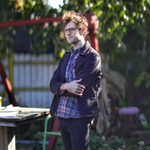Sleep is a very nice thing that is worth doing often
Sleep is the time when your body does a majority of its restorative 'maintenance'. Your body is able to repair damage, detoxify, fortify and strengthen your immune system. Hormones and neurotransmitters are given a chance to come back into balance, and your musculoskeletal system is given a much need chance to relax and let go of any tension held throughout the day.
When you don't get enough sleep, your body doesn’t have enough time to engage in this restorative maintenance. With chronic sleep deprivation, our body begins to deteriorate and all major areas of our health start to break down.
On the other hand, getting extra rest when you’re sick or recovering from strenuous activity, you will recover more quickly and be able to get back out and enjoy the activities you are passionate about.
And let’s not forget, sleep is also a time where humans dream, where one can be completely immersed in one’s (and the collective's) unconscious. And in my conception of the psyche, the unconscious is what connects us to literally everything.
A lot of people use the image of islands as their ‘waking’ consciousness and the ocean beneath that connects these islands together. Sleep is a time of dreaming, of being immersed in that ocean.
“Dreaming is a basic need like food, clothing, shelter, or touch. The historian of religions, Mircea Eliade, comments that:
One of the four phases of sleep is called REM (Rapid Eye Movement); it is the only phase during which the sleeping person dreams. The following experiments were done: Volunteers were prevented from staying in the REM phase, but were permitted to sleep. In other words, they could sleep, but it wasn’t possible for them to dream. Consequence: the following night, the persons deprived of REM tried to dream as much as possible, and if they were again prevented from doing so, they proved nervous, irritable, and melancholy during the day. And finally, when their sleep was no longer bothered, they gave themselves over to veritable “orgies of Rapid Eye Movement sleep,'' as if they were avid to recover everything they had lost during the preceding nights… These experiments… confirm the organic need of man to dream…[Man]-any man-is continually fascinated by the chronicling of the world, that is, by what happens in his world or in his own soul. He longs to find out how life is conceived, how destiny is manifest--in a word, in what circumstances the impossible becomes possible, and what are the limits of the possible.
Dreaming is necessary because human beings have an innate need to make sense of things, to understand who and what they are, to continually process and interweave the meanings they encounter each day into the fabric of their lives… The purpose of dreaming is to allow the unconscious mind to work with the meanings of one's life, both interior and exterior. By this process a person integrates meaning into the fabric of his character, his life takes on a more and more meaning as time goes by, he deepens-becomes less shallow, more alive and real.
Most dreaming is never consciously remembered, but during all of it the unconscious works with the material offered up to it through daily living to extract meaning, to understand our place and relationship to the world, the Universe, and life. It is an organic process as integral to human health and life as food, this need to work with meaning through dreaming. And like all our other basic needs, it has been taken by human beings and, over time, developed into art. Before printing, dreaming was crafted as art through storytelling, eventually developing more complexity as theater After printing, storytelling followed a new tack and developed as art through written fiction. They all involve our human capacity and need to dream.”
– Stephen Buhner, The Lost Language of Plants
The capacity to rest and reflect upon our lives in a holistic fashion also allows us to reflect upon areas beyond our basic physiological needs like our greater purpose in life.
Related:


Member discussion